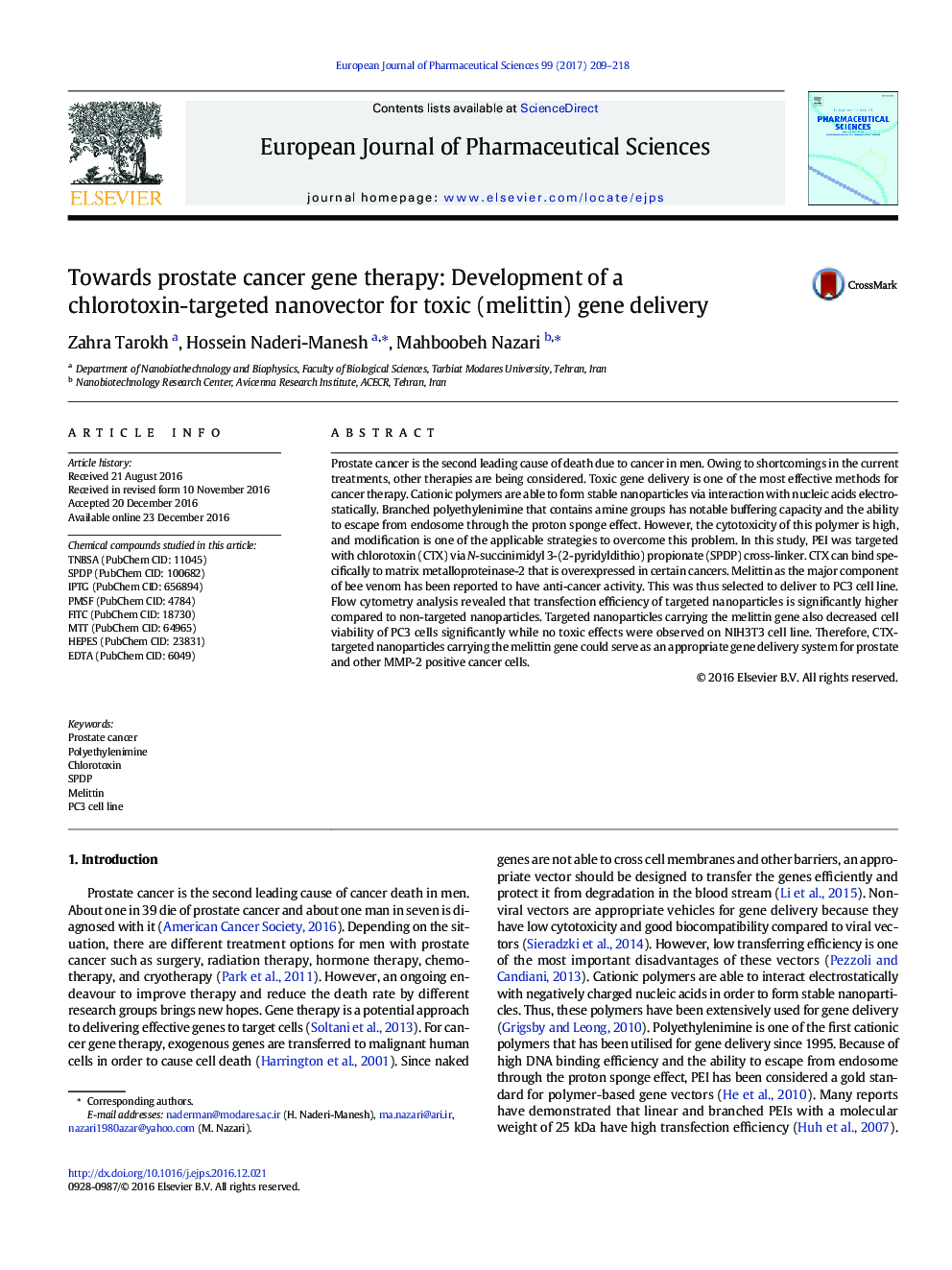| Article ID | Journal | Published Year | Pages | File Type |
|---|---|---|---|---|
| 5547908 | European Journal of Pharmaceutical Sciences | 2017 | 10 Pages |
Prostate cancer is the second leading cause of death due to cancer in men. Owing to shortcomings in the current treatments, other therapies are being considered. Toxic gene delivery is one of the most effective methods for cancer therapy. Cationic polymers are able to form stable nanoparticles via interaction with nucleic acids electrostatically. Branched polyethylenimine that contains amine groups has notable buffering capacity and the ability to escape from endosome through the proton sponge effect. However, the cytotoxicity of this polymer is high, and modification is one of the applicable strategies to overcome this problem. In this study, PEI was targeted with chlorotoxin (CTX) via N-succinimidyl 3-(2-pyridyldithio) propionate (SPDP) cross-linker. CTX can bind specifically to matrix metalloproteinase-2 that is overexpressed in certain cancers. Melittin as the major component of bee venom has been reported to have anti-cancer activity. This was thus selected to deliver to PC3 cell line. Flow cytometry analysis revealed that transfection efficiency of targeted nanoparticles is significantly higher compared to non-targeted nanoparticles. Targeted nanoparticles carrying the melittin gene also decreased cell viability of PC3 cells significantly while no toxic effects were observed on NIH3T3 cell line. Therefore, CTX-targeted nanoparticles carrying the melittin gene could serve as an appropriate gene delivery system for prostate and other MMP-2 positive cancer cells.
Graphical abstractDownload high-res image (124KB)Download full-size image
